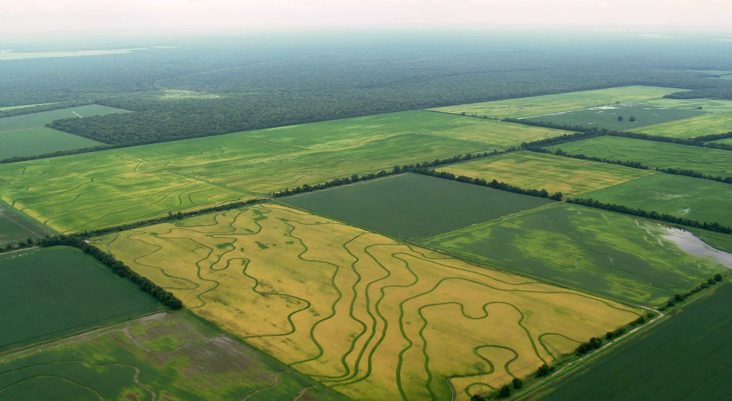Farmland owned by foreigners may be significantly underreported
by October 11, 2023 12:30 pm 1,085 views

Chinese investors have been interested in farmland near several U.S. military bases and many in the federal government think a better system of tracking farmland owned by foreigners needs to be developed.
Hampered by an antiquated paper-based and loophole-riddled reporting system, the number of foreign-owned acres of agricultural land in the U.S. may be undercounted, witnesses told the U.S. Senate Agriculture, Nutrition and Forestry Committee earlier this fall.
While the issue of foreign ownership of farmland and forestland in the United States goes back to the nation’s earliest days, concerns were reignited in 2021 when Chinese buyers eyed farmland near U.S. military bases.
According to National Agriculture Law Center, investors from three countries — Canada, the Netherlands and Italy — comprise one-half of all foreign ownership of agricultural lands. The United Kingdom and Germany represent 6% of all foreign land ownership. The remaining third is spread among 100 countries.
Citing the 2013 purchase of Smithfield Foods by the Chinese and subsequent foreign purchases of U.S. agriculture and food organizations, Committee Chair U.S. Sen. Debbie Stabenow, D-Michigan, said, “American farmers and families have raised many questions, from the economic impacts of foreign purchases in our food supply chain, to how we can protect agriculture innovation and research spurred by U.S. investment and more.”
“We also know food security is national security,” she said.
U.S. Sen. John Boozman, R-Ark., told members of the Rotary Club of Downtown Little Rock on Tuesday (Oct. 10) that China only owns about 1% of foreign-owned farmland in the U.S., but these swaths of land appear to be strategic buys.
Boozman said foreign farmland ownership in the U.S. needs to be tracked better.
“We need to know the extent of the problem,” he said.
The 1978 Agricultural Foreign Investment Disclosure Act, or AFIDA, requires any foreign person who buys, sells, or holds a direct or indirect interest in U.S. agriculture land to disclose holdings and transactions.
Gloria Montaño Greene, deputy undersecretary for farm production and conservation for the U.S. Department of Agriculture outlined the challenges her department faces in collecting information about foreign ownership.
“The process to report and track foreign-owned agricultural land is complex,” she told the committee.
“AFIDA is self-reporting. Currently, the AFIDA reporting system uses a paper-based approach to data collection,” Greene said. “We currently have no way to identify the geographic location of AFIDA filings more specifically than the country level.
“There is not currently a system at the national, state or local level that tracks deeds or leases and there is no automated reporting mechanism to aggregate information,” she said.
Two other senators also expressed concerns about the quality of data currently in the AFIDA reporting system.
“We have a lease loophole that’s currently in the AFIDA process, that if you don’t own it and you lease it, you don’t have to go through that reporting process,” said U.S. Sen. James Lankford, R-Okla., adding that a second loophole is that any holding smaller than 10 acres doesn’t have to be reported.
U.S. Sen. Tammy Baldwin, D-Wisconsin, said there was “an alarming gap” in reporting on foreign ownership and its effects on America’s food system.
“We don’t know the full extent of the risk at hand. Outdated reporting systems and a lack of auditing at both the state and federal level leave us with incomplete information and many questions,” Baldwin said.
Baldwin cited last year’s Farmland Security Act to help improve the situation. The law requires the Agriculture Department to move to an online form and create a public database of filings. The law also requires USDA to report to Congress on the impact of foreign ownership.
Legislative activity at both the state and federal levels has greatly increased since 2021, Harrison Pittman, director of the National Agricultural Law Center, said.
“In 2021 and 2022 at the state level, we saw a very significant increase in activity in the number of proposals” addressing foreign ownership, which he called a “historical shift.”
“Transferring over into 2023, that level of intensity and activity basically increased threefold across the country,” he said. “In fact, there are not many states left that have not had at least one or more proposals.”
As of July 2023, about half of U.S. states have enacted laws that bar or limit certain foreign ownership. A dozen states in 2023 alone — Alabama, Arkansas, Florida, Idaho, Louisiana, Montana, North Dakota, Ohio, Oklahoma, Tennessee, Utah and Virginia — have enacted laws restricting or limiting certain foreign ownership of land within that state.
Boozman said he hopes changes will be made at the federal level and that oversight will be much improved in the coming years.
